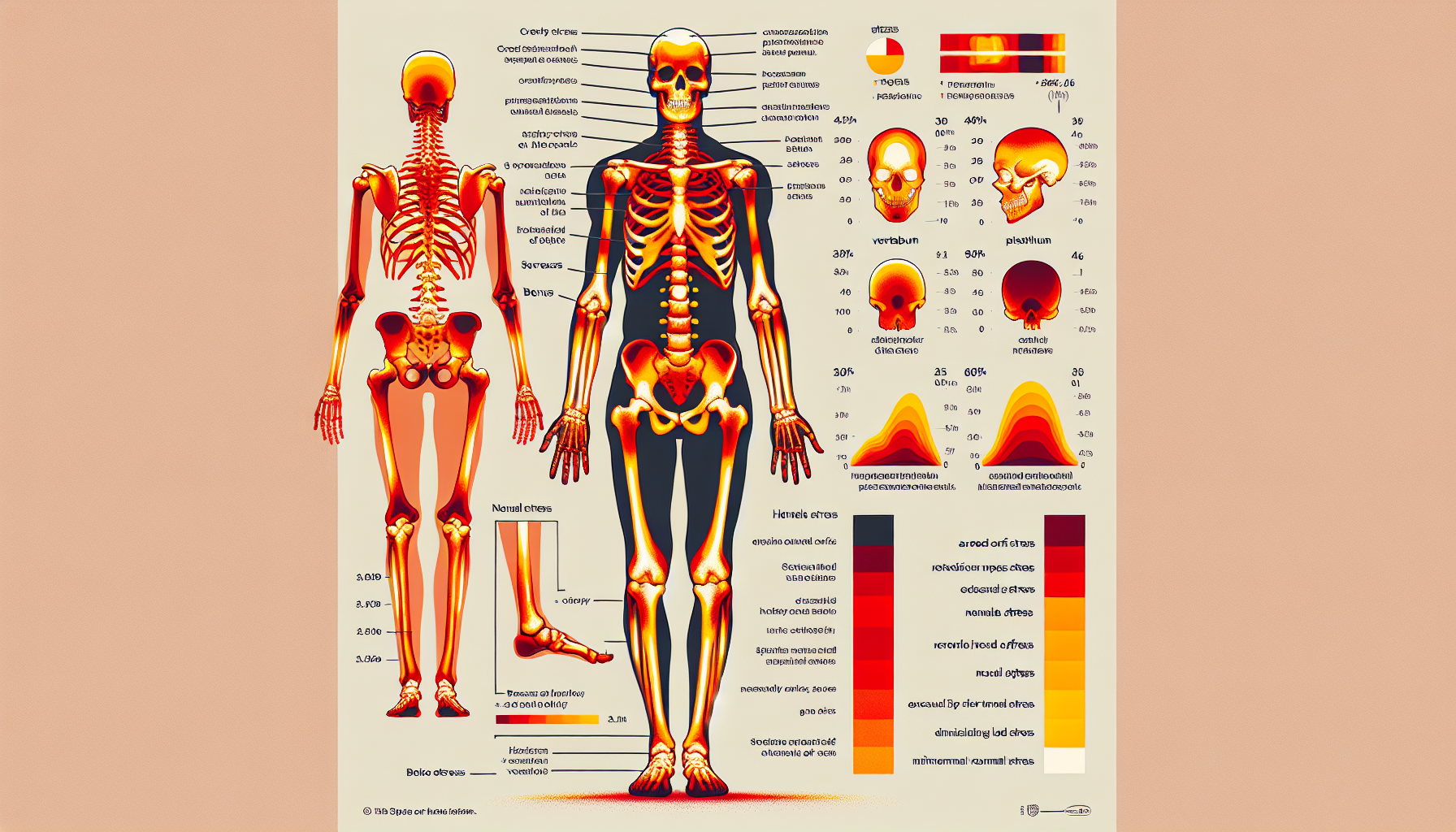In recent years, the correlation between stress and its myriad effects on health has been a focal point of numerous studies. It is well-known that prolonged stress can have a harmful impact on the cardiovascular system, mental well-being, and overall health. However, the specific implications of stress on bone health are less frequently discussed, yet equally important. This article aims to explore the intricate relationship between stress and bone health, delving into the physiological processes involved and highlighting strategies for mitigating these effects.
The Biology of Stress and Bone Health
Bones are living tissues that constantly undergo a process known as remodeling—where old bone is broken down by cells called osteoclasts, and new bone is formed by cells known as osteoblasts. This balance is crucial for maintaining strong and healthy bones. Stress can disturb this balance through the release of stress hormones like cortisol.
Cortisol has a catabolic effect, meaning it can lead to the breakdown of tissue, including bone. In high levels, cortisol can inhibit the function of osteoblasts, slowing down the formation of new bone, and can enhance the activity of osteoclasts, accelerating bone resorption. Sustained high cortisol levels, often a result of chronic stress, can thus lead to decreased bone density and an increased risk of osteoporosis.
Moreover, stress can influence behaviors that indirectly impact bone health, such as poor diet choices, increased consumption of caffeine or alcohol, and reduced physical activity. All these factors can contribute to weaker bones and a compromised skeletal structure.
To deepen our understanding of bone health, it is essential to recognize the importance of minerals and their role in bone density. Minerals such as calcium and phosphorus are vital for bone strength, and their balance is critical for maintaining bone health.
Stress-Induced Hormonal Changes and Nutrient Absorption
Chronic stress affects not only cortisol levels but also other hormones, including those involved in regulating calcium and other nutrients essential for bone health. Stress can impair the digestive system’s ability to absorb nutrients efficiently, which is vital for bone health. A well-functioning digestive system is crucial in extracting the nutrients from food that are necessary for bone maintenance and repair. For readers interested in the nuances of nutrient absorption and how it links to bone well-being, exploring the potential connection between probiotics and bone health can offer some insights.
Furthermore, stress can impact gut health, potentially leading to inflammation and a further decrease in nutrient absorption. This can be particularly detrimental to the absorption of calcium and vitamin D, both of which are critical for bone health. It’s worth noting that certain lifestyle choices can either exacerbate or mitigate these effects.
Lifestyle Choices Impacting Bone Health Under Stress
The lifestyle choices that can influence bone health during periods of stress include diet, exercise, and sleep:
- Diet: Consuming a balanced diet rich in calcium, vitamin D, and other bone-friendly nutrients is essential. During stress, people might lean towards convenient, processed foods that are often low in these nutrients. Therefore, it’s critical to be mindful of dietary choices and aim for nutrient-dense foods.
- Exercise: Physical activity, especially weight-bearing exercises, can help build and maintain bone density. Stress might lead to decreased motivation for exercise, but it’s important to maintain a regular exercise routine to support bone health.
- Sleep: Quality sleep is necessary for the body to repair itself, including bones. Stress can lead to sleep disturbances, which can, in turn, affect bone health.
Individuals concerned about bone density loss, particularly women during menopause, may find additional strategies and insights in the article Combating Bone Density Loss during Menopause.
Strategies to Alleviate Stress and Protect Bone Health
To mitigate the adverse effects of stress on bones, implementing stress reduction techniques and making certain lifestyle adjustments are key. Here are some strategies:
- Mindfulness and relaxation techniques: Practices such as meditation, deep breathing exercises, and yoga can reduce cortisol levels and promote a sense of calm.
- Regular physical activity: Engaging in regular exercise not only helps with stress management but also directly benefits bone health.
- Adequate sleep: Ensuring enough quality sleep each night allows the body to better manage stress and maintain healthy bones.
- Balanced diet: Eating a diet rich in calcium, vitamin D, and other nutrients supports bone density and overall health.
For a comprehensive understanding of bone remodeling and its significance in maintaining bone strength, especially under the influence of stress, one can refer to Understanding Bone Remodeling and Its Significance.
External Resources for Further Reading
In addition to the resources provided above, here are several external links to high-quality, niche resources that offer further information on the impact of stress on bone health:
- The Endocrine Society provides an in-depth look at how hormonal changes due to stress can affect bone density. (Insert link to a specific page on the Endocrine Society’s website with relevant information.)
- The National Osteoporosis Foundation offers resources on how lifestyle choices, including stress management, contribute to bone health. (Insert link to a specific page on the National Osteoporosis Foundation’s website with relevant information.)
- A scholarly article on PubMed discusses the direct effects of cortisol on osteoblast and osteoclast activity. (Insert link to a specific PubMed article that discusses the impact of cortisol on bone cells.)
- An academic journal on Psychoneuroendocrinology reviews the psychological aspects of stress and its physiological consequences on bone health. (Insert link to a specific article within the Psychoneuroendocrinology journal that reviews this topic.)
By exploring these resources, readers can gain a well-rounded perspective on how stress affects bone health and the importance of managing stress for a healthier skeletal system.
In conclusion, the impact of stress on bone health is a complex issue that intertwines physiological, behavioral, and lifestyle factors. Understanding how stress hormones affect the body and taking proactive steps to manage stress can help maintain strong bones and overall well-being. Regular exercise, proper nutrition, stress reduction techniques, and adequate sleep are all critical components in the fight against the detrimental effects of stress on bone health.



